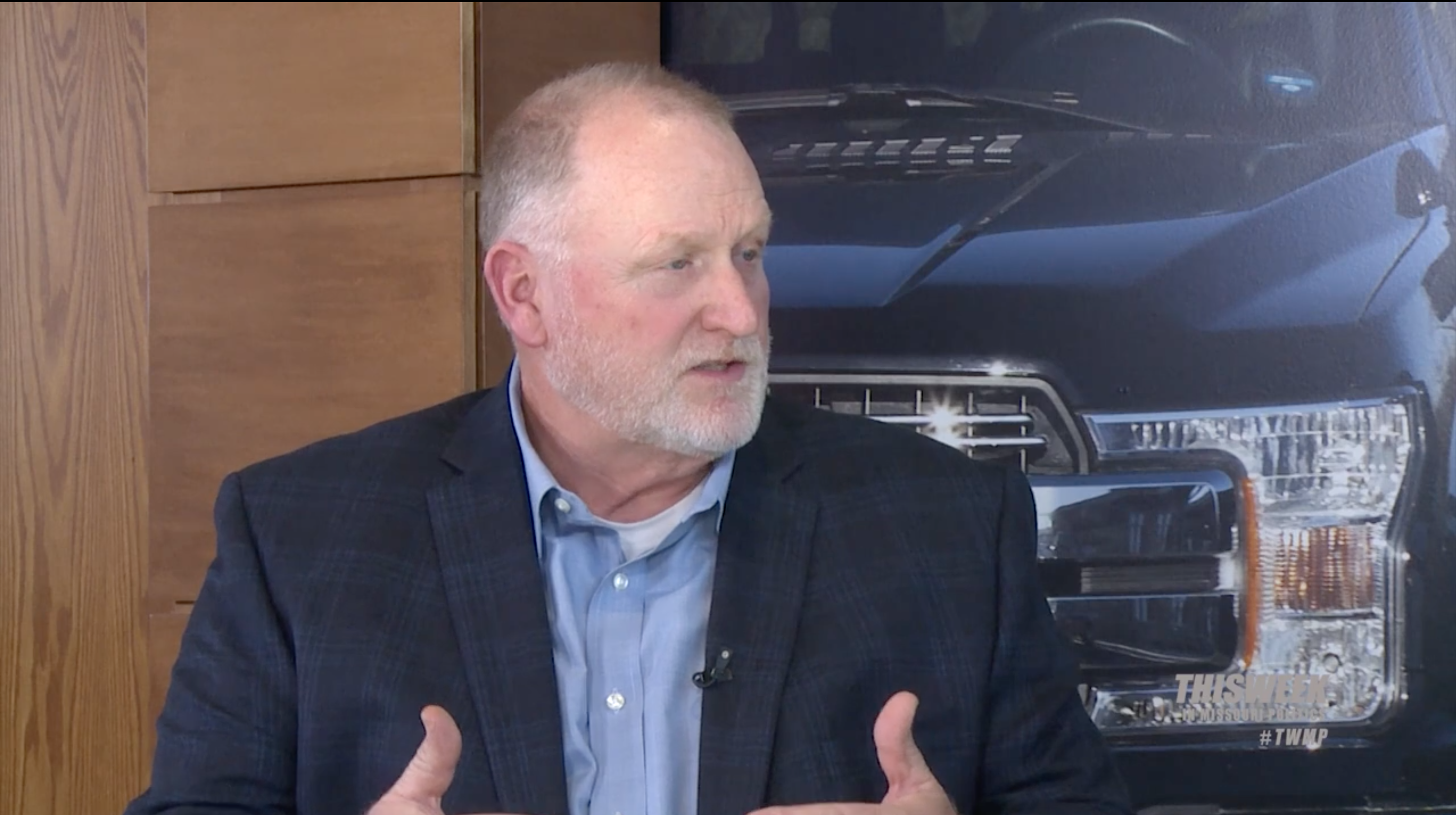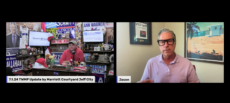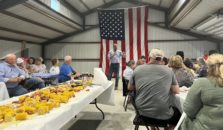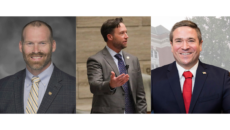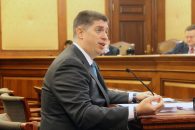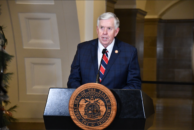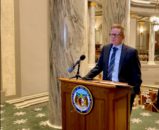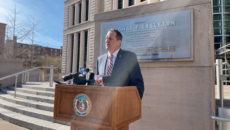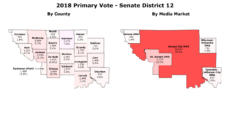Senate President Pro Tem Dave Schatz said he intends to remain at the helm of the upper chamber next session and steer it through its next batch of priority legislation while vying for a U.S. Senate seat.
“I took this job on, obviously, and I’m committed to staying and fulfilling the commitment that goes with this job,” Schatz said. “I’ll guarantee you one thing: I’m capable of continuing in the role that I have and the responsibility I have — obviously I’ll have some additional focus, but I’m going to continue to do the job that I was elected to do.”
Schatz appeared on Sunday’s episode of “This Week in Missouri Politics” to discuss his campaign, his opponents for the Republican nomination, and his tenure in the legislature.
He also highlighted priorities for the next legislative session, from critical race theory and agricultural issues to the deadline for new congressional maps.
“I think we have some very big things in front of us this year. Obviously, we have the congressional redistricting maps that are probably going to top the issues that we have to address immediately,” Schatz said. “We also have an unprecedented amount of federal money that’s going to be available. We’re going to make sure we … don’t squander those resources that are coming from the federal government.”
COVID-19
Reps. Ashley Aune, Bill Hardwick, and Louis Riggs joined this week’s panel to discuss rural broadband, legislative priorities for next session, and COVID-19.
A Cole County judge’s recent decision disallowed Missouri’s health director and local health agencies’ directors from using “personal discretion” when imposing orders that impact businesses, individuals, schools, and other entities, a decision Aune said could hamper officials’ ability to respond to the pandemic.
“I think what is more disappointing is a message it sends as we are seeing more spikes across the state,” Aune, a Democrat, said. “Yes, local control is great in Kansas City and St. Louis and Springfield, Columbia, and other areas where local authorities have made more sweeping changes like mask mandates and things like that. That’s worked really well for our communities, and our communities appreciate that.”
Hardwick, a Republican, argued the decision underscored a new state law putting the onus of health orders on legislative bodies.
“What Judge Greene’s ruling didn’t do was strike down those health rules made by the legislature, made by county commissioners, made by legislative bodies where there’s a vote,” Hardwick said. “It’s just when the administrative state gets too big and too powerful — he curtailed that back.”
Riggs said Gov. Mike Parson’s decision to leave health mandates up to local governments led to inconsistencies across Missouri, especially among eating establishments.
“I think the governor was in a tight spot. Sometimes the best answer is to do nothing and see where things go and things will sort themselves out eventually,” Riggs said. “But we destroyed 30 percent of small businesses as a result of the pandemic, and we can’t afford to do that again.”
Watch the full episode of “This Week in Missouri Politics” below, or listen to the podcast version here.

Cameron Gerber studied journalism at Lincoln University. Prior to Lincoln, he earned an associate’s degree from State Fair Community College. Cameron is a native of Eldon, Missouri.
Contact Cameron at cameron@themissouritimes.com.

